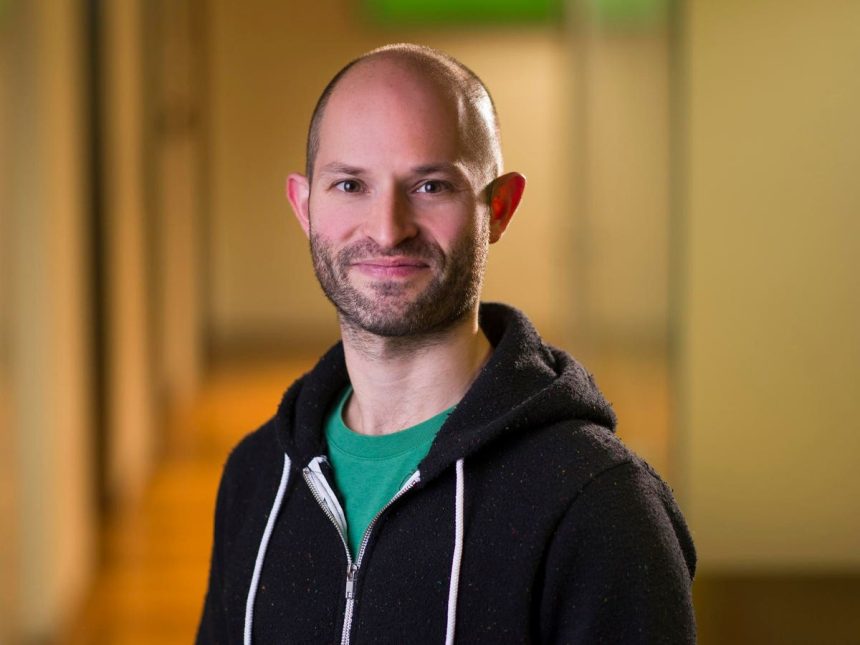“I ran out of options. I failed pretty hard twice in my career and I didn’t know what to do,” the CEO and founder of Beam, a UK-based social enterprise start-up, remarked candidly as we reclined on the full-length, bright orange sofa near the center of his relaxed open plan office. The vibrant full-floor space located in the trendy and artsy town of Hoxton in central London reflected the boundless energy, dedication, and enthusiasm of the start-up’s 130 employees—many of whom are Gen Z and millennials.
Sporting jeans and a Beam-branded t-shirt, Alex Stephany, himself a warm, down-to-earth individual, is no stranger to failure. He is an investor, board advisor, and founder of several companies including JustPark and Beam, having won an award for Social Entrepreneur of The Year in 2022. He credits his most valuable lessons in life and his career success, to failing…miserably.
I was intrigued to learn his story. One look at his LinkedIn profile, and it was evident that although he had graduated summa cum laude from Oxford in English Language, his early career history while studying and after graduating was unconventional. It was certainly not what I expected for a tech leader.
When Stephany was 19, he secured his first serious job as an English teacher abroad in China. “I wanted to make an impact in others’ lives, and I thought, ‘I think I can be an English teacher.’ One thing I can definitely do is speak English, and hopefully write English as well,” he joked modestly. “But I figured, maybe in this way I can be useful. It was a great opportunity for me; I was drawn to the type of work where I was solving the world’s problems.”
After graduation, the tech entrepreneur decided to pursue a career path in law. “It seemed like a good option to me because I wanted to pay off my student debts, and because I was working in international law, it exposed me to learning more about the world, so it ticked those two boxes for me.”
Stephany began working at British multinational law firm Clifford Chance, where he advised clients including J.P. Morgan and Barclays. But this fairy-tale career journey came to a painfully abrupt halt; he completed a two-year stint there before being handed the ultimatum to leave. At this point he started a new role as a management consultant for Big Four accountancy firms, staying only for six months before being fired.
In his own words, “I realized pretty quickly that I wasn’t a very good lawyer, and I wasn’t very well suited to that type of work. So they refused to give me a contract; this happened at one of the worst times, in the credit crunch during 2008, when it was hard to find another job, and it was a difficult time in my life. I was 26, and I felt very frightened for the future because here I was, I had landed this very prestigious job, but I had failed at it.”
“I was unemployed for a while, then I got a job in consulting, and that company also fired me.”
As he rested his chin on his hand, Stephany reflected, “Actually, what happened was quite good for me. It gave me a new outlook on my career.”
“I was told that medical students become doctors, engineering students become engineers, so I was restricted into this narrative and I thought that to work in tech, you needed to be a software developer or engineer. Now of course, we know today that you don’t need to know anything about coding to work in technology, but I didn’t think that was the case back then.”
Coincidentally, while Stephany was at this low ebb in his life, Google had just recently established its new office in London and he was being introduced to the world of smartphones and technology.
“Out of desperation and failure, I pivoted to tech. I started using a smartphone and I realized this is an exciting frontier that would open up a new world and change everything; I thought maybe there is a place in this new world for me. Instead of applying for consulting jobs, I changed my strategy and started applying for all kinds of roles in technology. In the end, I took the role of COO at a pretty small company called ParkatmyHouse (this would go on later to be JustPark where he was promoted to CEO). It was just two of us, me and the founder. And because I struggled so much in my career, at that point I had a strong desire to prove myself. I really didn’t want to fail again. This is why I think it’s so important for people to fail at stuff, because it fuels you, it teaches you about yourself, and it’s an important part of growing up.”
Embrace career failure
Stephany has a pretty unique, but empowering way of perceiving failure. In his view, failing actually propels you to success and matures you as you grow throughout your career. “I was at a very low point and continued to have low moments, even as COO. You know, you can get a fancy job title but it doesn’t mean you can do the job. I had to work hard and learn from other people. It was a ton of hard work, I had to solve hard problems, and I had to find a way to work sustainably.”
You don’t need to be great at everything
“No one is great at everything,” the tech entrepreneur continued. “You just need to lean into what you’re energized by, and if you do that, you’ll get better at it. If you’ve sucked at stuff previously, that’s not a reason for negativity, that just narrows down the problems you could solve. It’s all about being open-minded and finding those things that excite you and give you energy. Test things out to see what works for you, in a spirit of curiosity, excitement and passion.”
Fall in love with the problem, not the solution
The purpose of your career is to impact people’s lives for the better, enabling a better environment and contributing to the greater good for all. If you’re passionate about embarking on a career that positively impacts others, Stephany advises: “Lots of people become obsessed with the solution, but often the solutions are wrong and not such a great idea. You need to be focused on solving the problem.” This approach to planning the next stage of your career will ensure satisfaction and fulfilment.
Be smart with your resources
“Everyone’s working with constrained resources, especially early in their careers. That’s actually an opportunity for creativity. For example, let’s say you want to start a business and your resources are constrained because you have a day job, so you only have so much time to spend on this new idea. Well, that’s an advantage because that forces you to focus on what’s important. Think, what am I trying to do here and how can I use my time smartly?”
Perhaps we can all take a leaf out of Stephany’s book and embrace the concept of career failure, remembering that perception truly is everything. Being fired, unemployed, losing money, or having a soiled reputation—these can be used as a catalyst for the next great chapter of your career—if you’re willing to learn from it and use these lessons to fuel you.
Read the full article here









